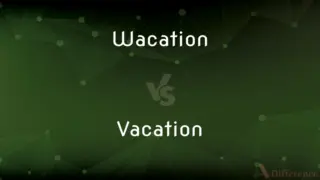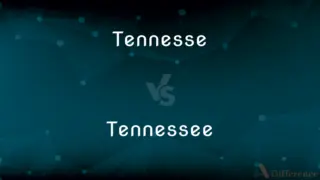Surprized vs. Surprised — Which is Correct Spelling?
Edited by Tayyaba Rehman — By Fiza Rafique — Updated on March 22, 2024
"Surprized" is an incorrect spelling; the accurate form is "Surprised," denoting being taken unawares by an unexpected event.
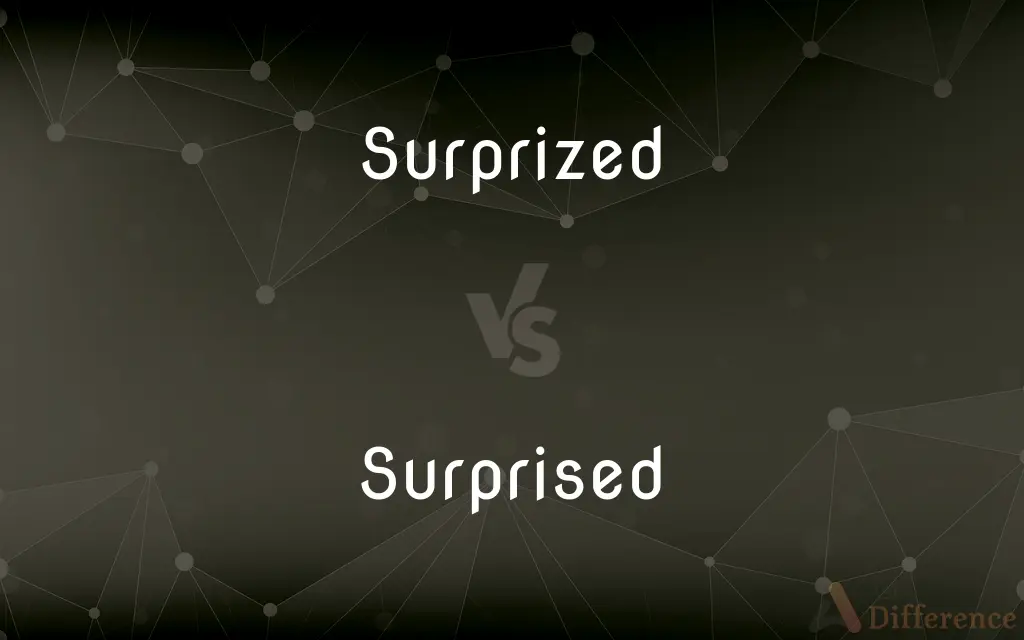
Table of Contents
Which is correct: Surprized or Surprised
How to spell Surprised?

Surprized
Incorrect Spelling

Surprised
Correct Spelling
ADVERTISEMENT
Key Differences
Remember "Surprise" with an "s" from party surprises.
Think of "Surprise" and add a "d" for the past tense.
“Rise” in “Surprise” has an “s,” and so does the past form.
Note that "surprise" is spelled with an “s” in both British and American English.
How Do You Spell Surprised Correctly?
Incorrect: She was surprized to find out she won the lottery.
Correct: She was surprised to find out she won the lottery.
ADVERTISEMENT
Incorrect: We were surprized that the movie was actually good.
Correct: We were surprised that the movie was actually good.
Incorrect: They were surprized by the sudden change in weather.
Correct: They were surprised by the sudden change in weather.
Incorrect: He looked surprized when his friends threw him a party.
Correct: He looked surprised when his friends threw him a party.
Incorrect: I was surprized at the quality of the restaurant's food.
Correct: I was surprised at the quality of the restaurant's food.
Surprised Definitions
Being the recipient of something unexpected.
He looked surprised during the party.
Exhibiting a startled or shocked expression.
His surprised face made everyone laugh.
Encountering something without prior expectation.
I was surprised to see her there.
Feeling or showing unexpectedness.
She was surprised at the news.
Coming across a situation unprepared.
The teacher was surprised by the student's question.
Feeling or showing surprise
There was a surprised silence
To cause to feel wonder, astonishment, or amazement, as at something unanticipated
Thinking I was at home, she was surprised to see me in the office. We were surprised that he could recover so quickly.
To encounter or discover suddenly or unexpectedly; take or catch unawares
She surprised him as he was reading her diary.
To attack or capture suddenly and without warning
Surprised the sentries in a predawn raid, wounding several.
To cause (someone) to do or say something unintended or to be in an unintended condition
"There passed a scene ... that surprised me into courage to come forward" (Fanny Burney).
To elicit or detect through surprise
"She occasionally surprised a look on Jemima's face" (Marcia Willett).
The act of surprising or the condition of being surprised
Imagine my surprise on seeing you here.
Something, such as an unexpected encounter, event, or gift, that surprises.
Caused to feel surprise, amazement or wonder, or showing an emotion due to an unexpected event.
Simple past tense and past participle of surprise
Taken unawares or suddenly and feeling wonder or astonishment;
Surprised by her student's ingenuity
Surprised that he remembered my name
A surprised expression
Surprised Meaning in a Sentence
They were surprised by the teacher's pop quiz on Monday.
She was surprised to see her painting in the art gallery.
I was surprised at how much I enjoyed the concert.
He was surprised when he found a hidden treasure in his backyard.
I was surprised by the kindness of strangers during my trip.
They were surprised to hear their song on the radio.
We were surprised to find a deer in our garden this morning.
I was surprised how quickly the children cleaned up the playroom.
We were surprised when our team made it to the finals.
The magician's final trick surprised and delighted the audience.
They were surprised to see snow in April.
He was surprised to discover he had a talent for cooking.
She was surprised to receive a scholarship to her dream university.
He was surprised that the movie was based on a true story.
Common Curiosities
What is the verb form of Surprised?
Surprise.
Why is it called Surprised?
Derived from the verb "surprise," indicating an unexpected or startling event.
What is the root word of Surprised?
Surprise.
Which vowel is used before Surprised?
Either; “a” in “a surprised look” or “the” based on context.
Which conjunction is used with Surprised?
Contextual; can be "and" or "but."
What is the pronunciation of Surprised?
/sərˈpraɪzd/
Which preposition is used with Surprised?
Often "by" or "at" as in "surprised by" or "surprised at."
What is the singular form of Surprised?
Surprised.
Is Surprised an adverb?
No.
What is the plural form of Surprised?
No plural; it's an adjective.
Is Surprised a countable noun?
No, it’s an adjective.
Is Surprised a collective noun?
No.
Is Surprised a negative or positive word?
Neutral.
Is Surprised a vowel or consonant?
It's a word, containing both vowels and consonants.
Is the word Surprised a gerund?
No.
How many syllables are in Surprised?
Two.
What is the opposite of Surprised?
Unsurprised, expected.
Which article is used with Surprised?
"A" or "the" depending on the context.
Is Surprised a noun or adjective?
Adjective.
Is the Surprised term a metaphor?
No.
What is a stressed syllable in Surprised?
-prised.
What part of speech is Surprised?
Adjective.
How do we divide Surprised into syllables?
Sur-prised.
What is another term for Surprised?
Astonished, shocked.
What is the first form of Surprised?
Surprise.
What is the second form of Surprised?
Surprised.
Is Surprised an abstract noun?
No.
Is the word Surprised imperative?
No.
Is the word “Surprised” a Direct object or an Indirect object?
Neither; it's an adjective.
Which determiner is used with Surprised?
Depends; e.g., "the," "this."
What is the third form of Surprised?
Surprised.
How is Surprised used in a sentence?
Example: They were surprised by the unexpected visit.
Share Your Discovery
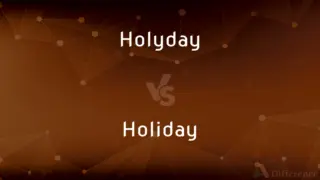
Previous Comparison
Holyday vs. Holiday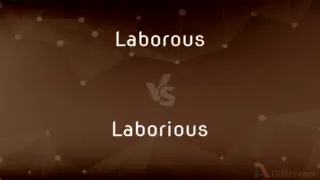
Next Comparison
Laborous vs. LaboriousAuthor Spotlight
Written by
Fiza RafiqueFiza Rafique is a skilled content writer at AskDifference.com, where she meticulously refines and enhances written pieces. Drawing from her vast editorial expertise, Fiza ensures clarity, accuracy, and precision in every article. Passionate about language, she continually seeks to elevate the quality of content for readers worldwide.
Edited by
Tayyaba RehmanTayyaba Rehman is a distinguished writer, currently serving as a primary contributor to askdifference.com. As a researcher in semantics and etymology, Tayyaba's passion for the complexity of languages and their distinctions has found a perfect home on the platform. Tayyaba delves into the intricacies of language, distinguishing between commonly confused words and phrases, thereby providing clarity for readers worldwide.






























